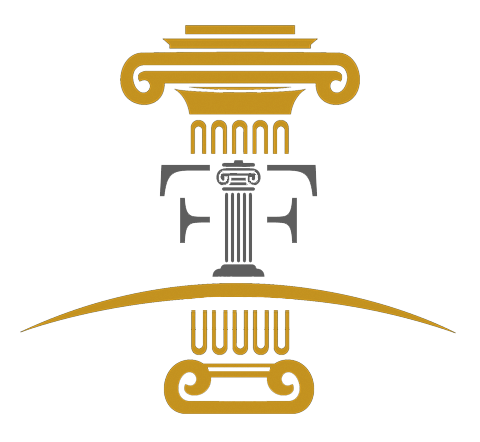Chapter 7
We understand your need to rid yourself of financial burdens. You deserve a fresh start. Filing for Chapter 7 bankruptcy can help you do just that. Our lawyers will review your financial situation and determine if you qualify to file for bankruptcy under Chapter 7.
Many of our clients are worried about losing their houses, cars, and other assets after filing Chapter 7 bankruptcy relief. The State of California allows you keep some of these assets through exemptions or by reaffirming the debt. Our lawyers will explain this process, maximize your exemptions and/or help reaffirm the debt as necessary so you can keep your most prized assets if and when possible.
Chapter 11
We have extensive experience representing both secured and unsecured creditors in Chapter 7, 9, 11, and 13 bankruptcy proceedings. This includes moving for relief from stay to enforce liens against a creditors’ collateral or to allow a lawsuit to move forward against the debtor. We also have experience representing unsecured creditors and the creditors’ committees to maximizing their recovery under any proposed plan of reorganization. Once bankruptcy proceedings have begun, we are active and aggressive in getting the best results for our clients.
We also have experience helping and representing businesses and individuals in reorganization under Chapter 11 bankruptcy proceedings. Sometimes debt can be restructured with creditors without the need for filing Chapter 11 bankruptcy. However, if a Chapter 11 bankruptcy filing is necessary, we will analyze your debts and where necessary make agreements with the creditors to reorganize the debts into more affordable payments as part of a consensual plan of reorganization. In a Chapter 11 case, the business is allowed to keep its assets and is given a chance to bounce back from financial difficulty. If a consensual plan of reorganization is not possible, under certain circumstances, the creditors’ claims can be reduced or eliminated as necessary to reorganize the business.
Reorganizations for Small Businesses
In August 2019, Congress passed the Small Business Reorganization Act (SBRA), which became effective on February 19, 2020.
The primary objective of SBRA is to enable small businesses to successfully emerge from bankruptcy with a Court-approved plan of reorganization that must be filed not later than 90 days of a bankruptcy filing absent circumstances beyond a debtor’s control. The benefits offered to large businesses that file Chapter 11 bankruptcies, including a debtor’s ability to reduce liabilities, reject or restructure leases and executory contracts, renegotiate debt, and sell its assets, will now be available for smaller companies without having to incur the costs associated with larger Chapter 11 filings.
To implement those objectives, the SBRA created sub-chapter V of the Bankruptcy Code, which provided small businesses (companies including sole proprietorships with non-contingent, liquidated debts in an amount not greater than $2,725,625) with an opportunity to restructure their liabilities through a streamlined and cost effective Chapter 11 bankruptcy process. The SBRA also offered small business owners the opportunity to retain their ownership interest in the reorganized company. This is beneficial when compared to non-small business Chapter 11 cases, which generally result in the cancellation of equity (unless equity holders provide new value to fund a Chapter 11 plan of reorganization or the chapter 11 plan provides for payment in full to all unsecured creditors).
CARES Act Amendments to SBRA
In light of the economic impact of COVID-19 virus on U.S. businesses (both large and small), Congress passed the CARES Act on March 27, 2020, which amends the SBRA to increase the debt limit for debtors filing under sub-chapter V from $2,725,625 to $7.5 million. The debt limit will revert back to $2,725,625 after one year unless further extended by Congress. This change will substantially increase the number of businesses that are eligible for relief under the SBRA.
The SBRA, as amended by the CARES Act, permits businesses with debts of less than $7.5 million (both secured and unsecured) to file a Chapter 11 case under sub-chapter V provided that 50% or more of those debts arise from business or commercial activities.
For any questions about SBRA bankruptcy filings, processes, please contact any member of our firm’s Restructuring & Bankruptcy Practice group.
Chapter 13
In October of 2005, sweeping changes occurred to the federal bankruptcy laws. Among other things, these changes made it more difficult for some people to qualify for Chapter 7 bankruptcy relief.
Even if you do not qualify for Chapter 7 under the more restrictive criteria, you may still qualify for Chapter 13 protection. Chapter 13 bankruptcy is commonly known as either “debt repayment” or the “wage-earner plan.” Under Chapter 13, a plan is put into place for you to pay down your debt over a period of three to five years. This differs from debt consolidation plans in that it is under the supervision of the bankruptcy court and involves negotiating lower interest rates or forgiveness of a portion of your debt with the creditors themselves.
If you are a creditor, we will help you maximize your recovery by aggressively asserting your rights in the debtor’s Chapter 13 bankruptcy case. If you are a potential debtor, we will help you determine which bankruptcy protection is best suited for your particular financial situation.

